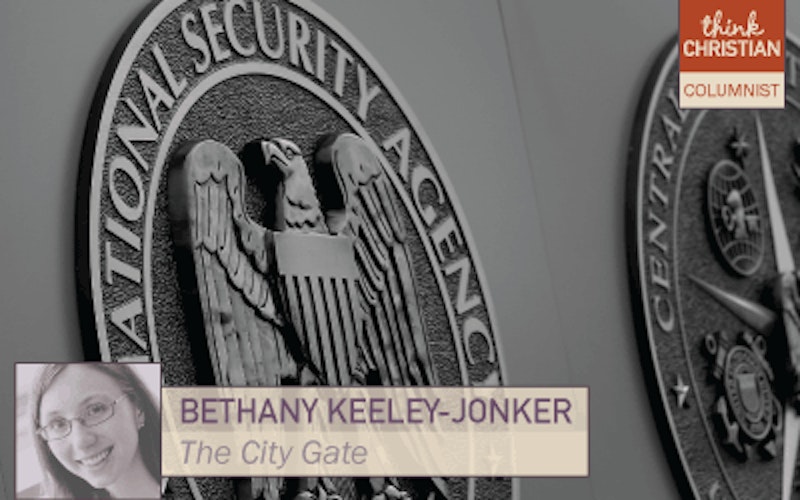
Culture At Large
Why sinfulness should make us wary of NSA surveillance
As more information rolls out about the recently leaked National Security Agency surveillance program, PRISM, I’ve been asking myself how my Christian faith might inform my opinion. One refreshing thing about this particular debate is that it doesn’t fall evenly along party lines, which I think gives everyone a better opportunity to think through the issues at stake. It also leads to some decent non-partisan joke-making (see this tumblr).
A lot of the public argument about this issue is based around the tension between two American values: security and liberty. It seems people’s estimation of which of these is more important depends on a couple of variables: how serious and pervasive they believe the threat to our security is (see Joel Mathis’ helpful delineation of this discussion) and what they perceive as the consequences of the threat to our liberty.
In both of these responses, a Christian understanding of human sin will come into play. Regardless of their politics, orthodox Christians believe that the world is inclined toward sin. My instinctual response to this program is suspicion, especially because I’ve previously expressed concern over the uses to which incomplete or imperfect data has been put. I also frequently return to an older Chronicle article that I sometimes assign to students. In arguing why privacy is important even if you’re doing nothing wrong, Daniel Solove notes that sometimes partial data can make an innocent person look guilty, either because of human fallibility or intentional malice.
We must not only protect ourselves from would-be terrorists, but also from would-be heroes targeting the wrong villains.
However, an understanding of human sinfulness also impresses on me the potential danger we could be facing from those who intend large-scale, random harm against the United States. While the kind of domestic and international terror we’ve witnessed in my lifetime may be in some ways unique, death and destruction at the hands of humans is certainly nothing new, and a major role for government is to protect civilians from attack. It is difficult for us to know how many attacks have been foiled because of surveillance programs, as that information is rarely released to the public.
Despite these concerns, I’m still inclined to believe programs like PRISM should be discontinued or at least subject to greater checks and balances. Partly, I’m concerned that even if the program is meant for safety, some of the people working for NSA contractors might use them to target individuals for reasons of prejudice or vengeance. Alan Jacob’s recent post on the topic also reminds me that as Christians, we should be especially attentive to how programs like this might endanger those who are at the fringes of society or disadvantaged in some way. He highlights a traditionalist desire for tolerance of our own differences, but I think also concern for orphans, widows and aliens might extend to those the law tends to come down harder on. Some groups or individuals get increased scrutiny because of their ethnicity, or their (perfectly legal) jobs or interests. Even if my interests and habits won’t put me at risk, I want to take a position that protects minorities, journalists and non-violent political activists.
In these cases, we must not only protect ourselves from would-be terrorists, but also from would-be heroes targeting the wrong villains. Rienhold Niebuhr argued on the eve of World War II that the best remedy to human sinfulness - because of our inability to consistently do good - was balancing power. This way, our selfish behavior at least works to protect us from the selfish behavior of others. Niebuhr was referring to the relationships between nations and our obligations toward weaker countries, but I think it also applies to our thinking about how national institutions operate. Beware any person or group with too much power, especially in secret.
Topics: Culture At Large, Science & Technology, Technology, Theology & The Church, Theology, News & Politics, North America